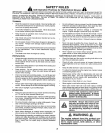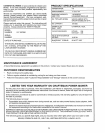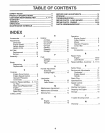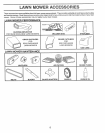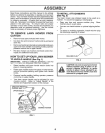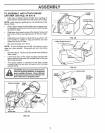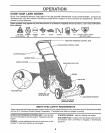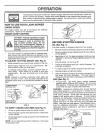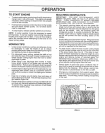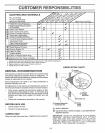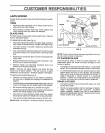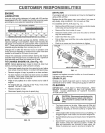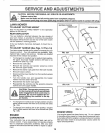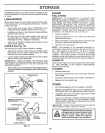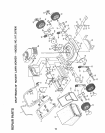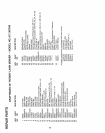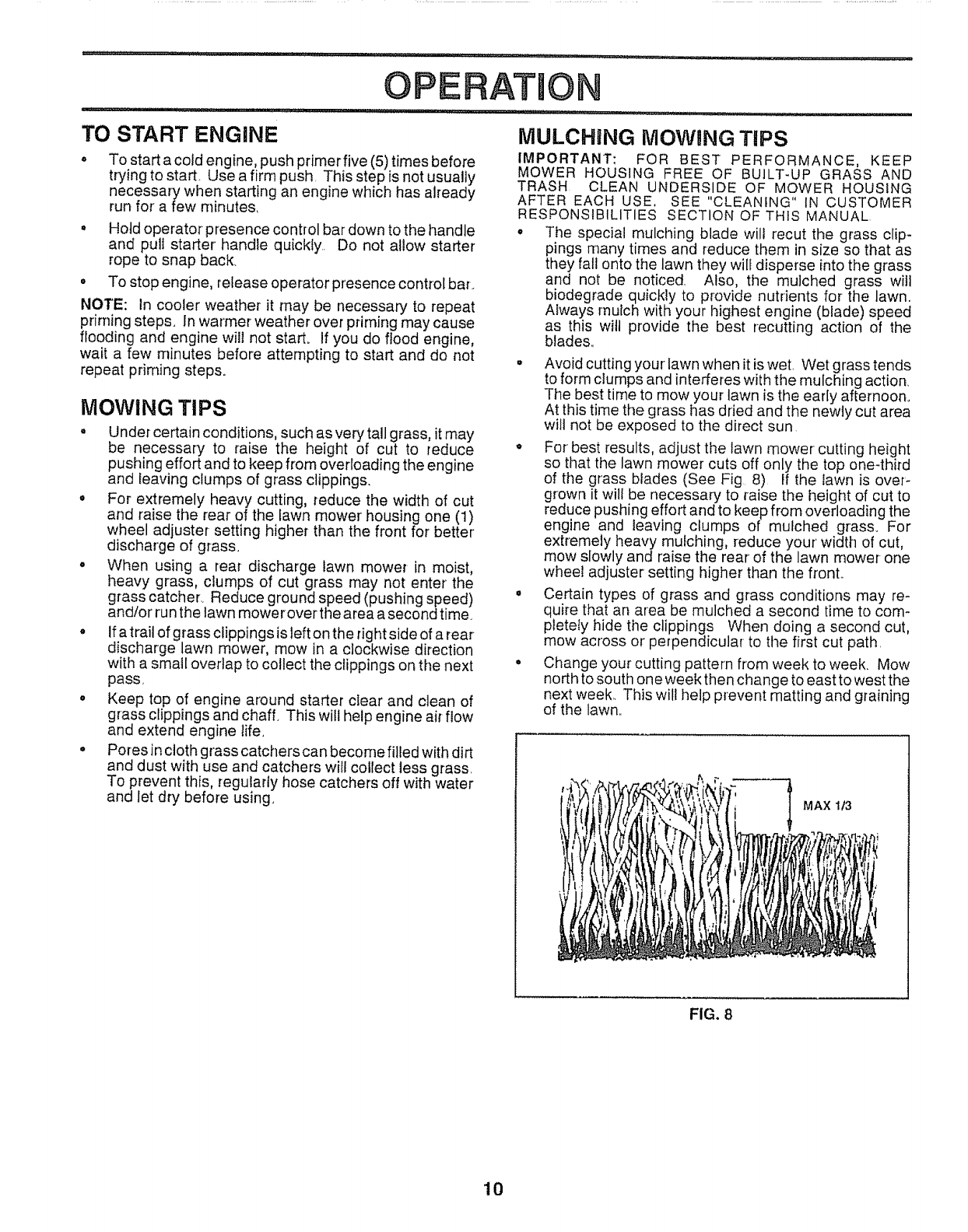
TO START ENGINE
To start a cold engine, push primer five (5) times before
trying to start. Use a firm push This step is not usually
necessary when starting an engine which has already
run for*a few minutes,
• Hoid operator presence control bar down to the handle
and pulJ starter handle quickly. Do not allow starter
rope to snap back_
• To stop engine, release operator presence control bar.
NOTE: In cooler weather it may be necessary to repeat
priming steps. In warmer weather over priming may cause
flooding and engine wil! not start. If you do flood engine,
wait a few minutes before attempting to start and do not
repeat priming steps°
MOWING TIPS
° Under certain conditions, such as very tall grass, it may
be necessary to raise the height of cut to reduce
pushing effort and to keep from overloading the engine
and leaving clumps of grass clippings.
° For extremely heavy cutting, reduce the width of cut
and raise the rear of the lawn mower' housing one (1)
wheel adjuster- setting higher than the front for better
discharge of grass.
• When using a rear discharge lawn mower in moist,
heavy grass, clumps of cut grass may not enter' the
grass catcher.. Reduce ground speed (pushing speed)
and/or run the lawn mower over the area a second time.
° If atrail of grass clippings is left on theright side of a rear
discharge lawn mower, mow in a clockwise direction
with a small overlap to collect the clippings on the next
pass.
• Keep top of engine around starter clear and clean of
grass clippings and chaff. This will help engine air flow
and extend engine life.
° Pores in cloth grass catchers can become filled with dirt
and dust with use and catchers will collect less grass.
To prevent this, regularly hose catchers off with water
and let dry before using.
MULCHBNG MOWING TiPS
IMPORTANT: FOR BEST PERFORMANCE, KEEP
MOWER HOUSING FREE OF BUILT-UP GRASS AND
TRASH CLEAN UNDERSIDE OF MOWER HOUSING
AFTER EACH USE. SEE "CLEANING" IN CUSTOMER
RESPONSIBILITIES SECTION OF THIS MANUAL
, The special mulching blade will recut the grass clip-
pings many times and reduce them in size so that as
they fall onto the lawn they will disperse into the grass
and not be noticed. Also, the mulched grass witl
biodegrade quickly to provide nutrients for*the lawn.
Always mulch with your highest engine (blade) speed
as this wilt provide the best recutting action of the
blades.,
° Avoid cutting your lawn when it is wet. Wet grass tends
to form clumps and interferes with the mulching action.
The best time to mow your lawn is the early afternoon..
At this time the grass has dried and the newly cut area
will not be exposed to the direct sun
* For best results, adjust the lawn mower cutting height
so that the lawn mower cuts off only the top one-third
of the grass blades (See Fig 8) If the lawn is over-
grown it will be necessary to raise the height of cut to
reduce pushing effort and to keep from overloading the
engine and leaving clumps of mulched grass. For
extremely heavy mulching, reduce your' width of cut,
mow slowly and raise the rear of the lawn mower-one
wheel adjuster setting higher than the front..
° Certain types of grass and grass conditions may re-
quire that an area be mulched a second time to com-
pletely hide the clippings When doing a second cut,
mow across or perpendicular to the first cut path.
o Change your cutting pattern from week to week. Mow
north to south one week then change to east to west the
next week.. This will help prevent matting and graining
of the lawn..
MAX 1t3
FIG. 8
10



